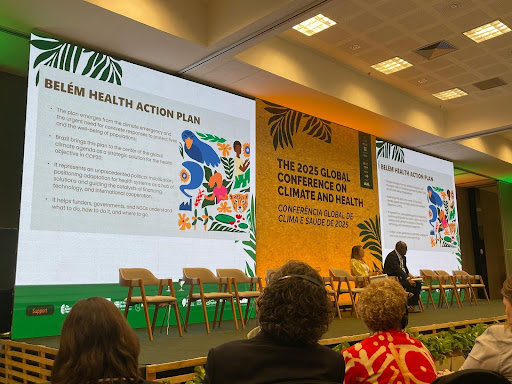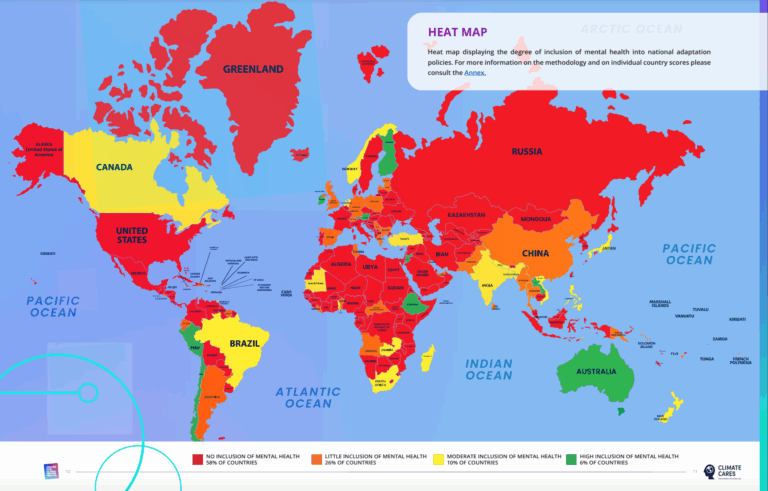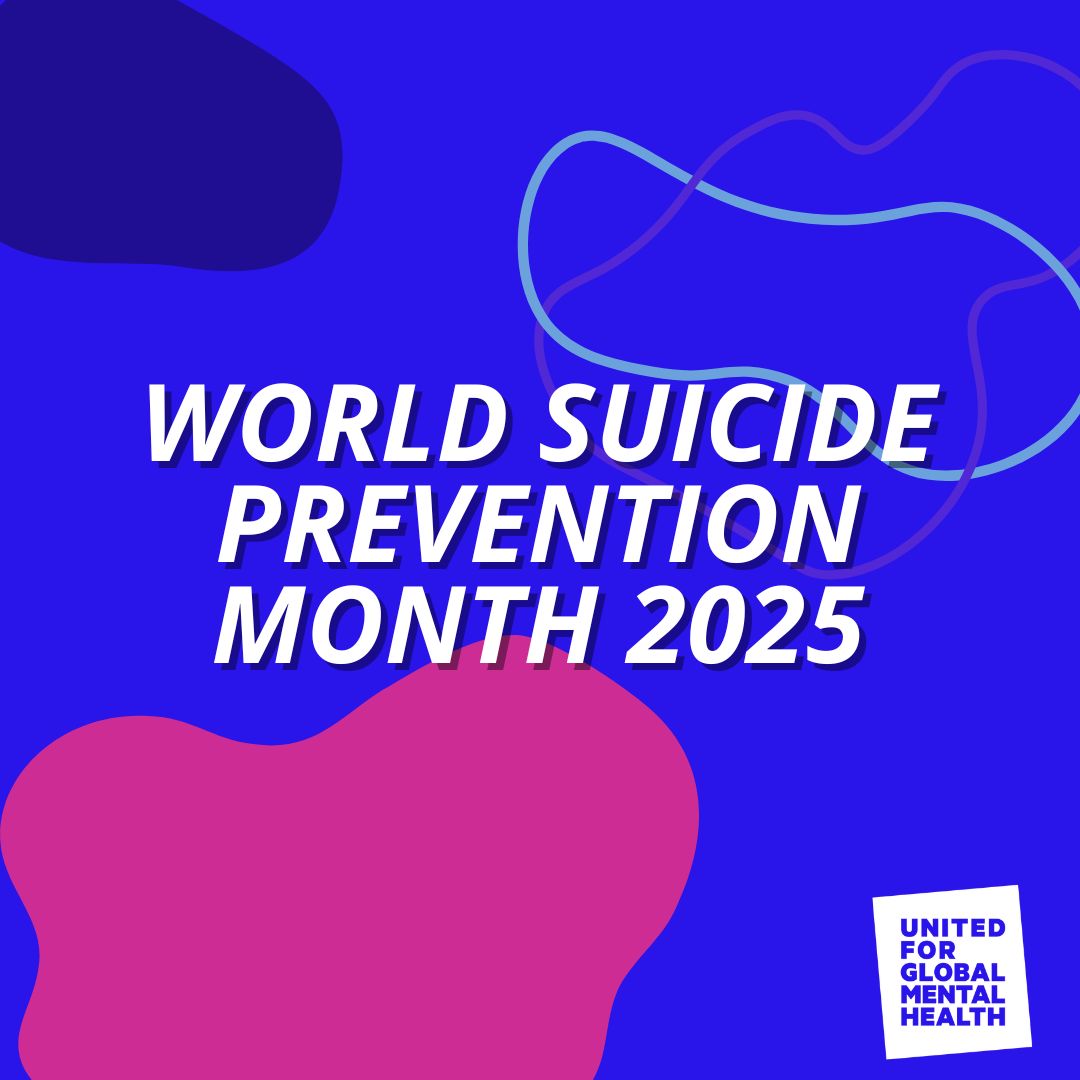Climate Adaptation to Protect Mental Health: Insights from the 2025 Conference on Climate and Health in Brasilia
Written by Allessandro Massazza, Policy and Advocacy Advisor – Environment & Climate Change
Last week, more than 500 policymakers, government officials, civil society representatives, and UN agencies met in Brasilia, Brazil in an official pre-COP event on climate change and health: the 2025 Global Conference on Climate and Health. This event was co-convened by the Brazilian Ministry of Health, the World Health Organization (WHO), and the Pan American Health Organization (WHO).

The presentation of the Belem Health Action Plan at the 2025 Global Conference on Climate and Health, Brasilia – Photo: Alessandro Massazza
One of the key outputs being discussed during the conference was the Belém Health Action Plan on the adaptation of the health sector to climate change. The Belém Health Action Plan is a document being developed by the Brazilian Ministry of Health outlining concrete actions for adaptation and health which countries will be able to endorse at COP30 in Belém.
Adaptation is fundamental to protecting mental health from the worst impacts of climate change.
Whether it’s through building flood defenses or implementing early warning systems for heat waves, preparing for the impacts of climate change is essential to ensure that the mental health of people and communities is protected.
However, adaptation policies to date have rarely considered mental health. A report launched earlier this month by United for Global Mental Health and the Climate Cares Centre looking at national adaptation policies from more than 190 countries highlights how more than half (58%) of all countries do not include any reference to mental health. Even more concerning is that less than 1 in 5 countries includes adaptation actions for mental health in the context of their adaptation policies.

Map showing the degree of inclusion of mental health in adaptation policies. Source: United for Global Mental Health, 2025
It is therefore encouraging to see a specific section focusing on mental health and psychosocial support within the Belém Health Action Plan (section 2.7 Integrate Mental Health and Psychosocial Support (MHPSS) into Climate Adaptation in the Health Sector).
The section currently includes the following content:
- Prioritize and mainstream mental health and psychosocial support (MHPSS), recognizing that climate change impacts on mental health are already significant and tend to intensify. This should be a continuous component of prevention, preparedness, response, and recovery strategies;
- Develop and implement psychological first aid (PFA) programs for health professionals and affected communities;
- Include MHPSS actions in training and capacity-building programs for the health workforce (see Item 2.2);
- Establish intersectoral protocols and care pathways that integrate MHPSS into climate emergency surveillance and response;
- Prioritize funding and technical support for these actions, especially in high-climate vulnerability contexts.
Mental health also featured consistently across the conference with multiple speakers, from the Director of PAHO Dr. Jarbas Barbosa to the Brazilian Ministry of Health Dr. Alexandre Padilha, highlighting the impacts on mental health of more frequent and intense extreme weather events. Young people also highlighted the mental health impacts of climate change, with Bianca Carvalho from the WHO Youth Council describing her experiences of worry and concerns due to climate stressors such as flooding or dengue outbreaks in Brazil.
A group that was particularly vocal concerning the importance of integrating considerations around psychological wellbeing in adaptation action was that of Indigenous communities. Many Indigenous speakers described the profound impacts on their psychological, cultural, and spiritual wellbeing coming from climate stressors and environmental degradation, but also their many sources of resilience and knowledge about how to respond to these stressors.
As United for Mental Health, we contributed to the mental health discussion by discussing our recent report which will be included as a supporting document to the Belém Health Action Plan.

From left to right: Rose Mokaya (Ministry of Health, Kenya), Daniel Buess (Pan American Health Organization), Tutut Indra Wahyuni (Ministry of Health, Indonesia), Marcio Gagliato (MHPSS.net), and Alessandro Massazza (United for Global Mental Health) following the presentation of United for Global Mental Health supporting document to the Belém Health Action Plan.
The Brazilian Ministry of Health is currently open to feedback on the content of the Belém Health Action Plan. As United for Global Mental Health, we have been supporting in coordinating feedback from the mental health community. If you have any feedback on the context of the Belém Health Action Plan, please get in touch with us at alessandro@unitedgmh.org by Thursday 21st of July COB.
COP30 will represent an important opportunity to ensure health is mainstreamed in climate negotiations, building on the momentum from previous COPs. Discussions on health within adaptation will be particularly timely as countries come together to adopt the Global Goal on Adaptation, which includes a specific target on health. We must ensure mental health remains central to these discussions.